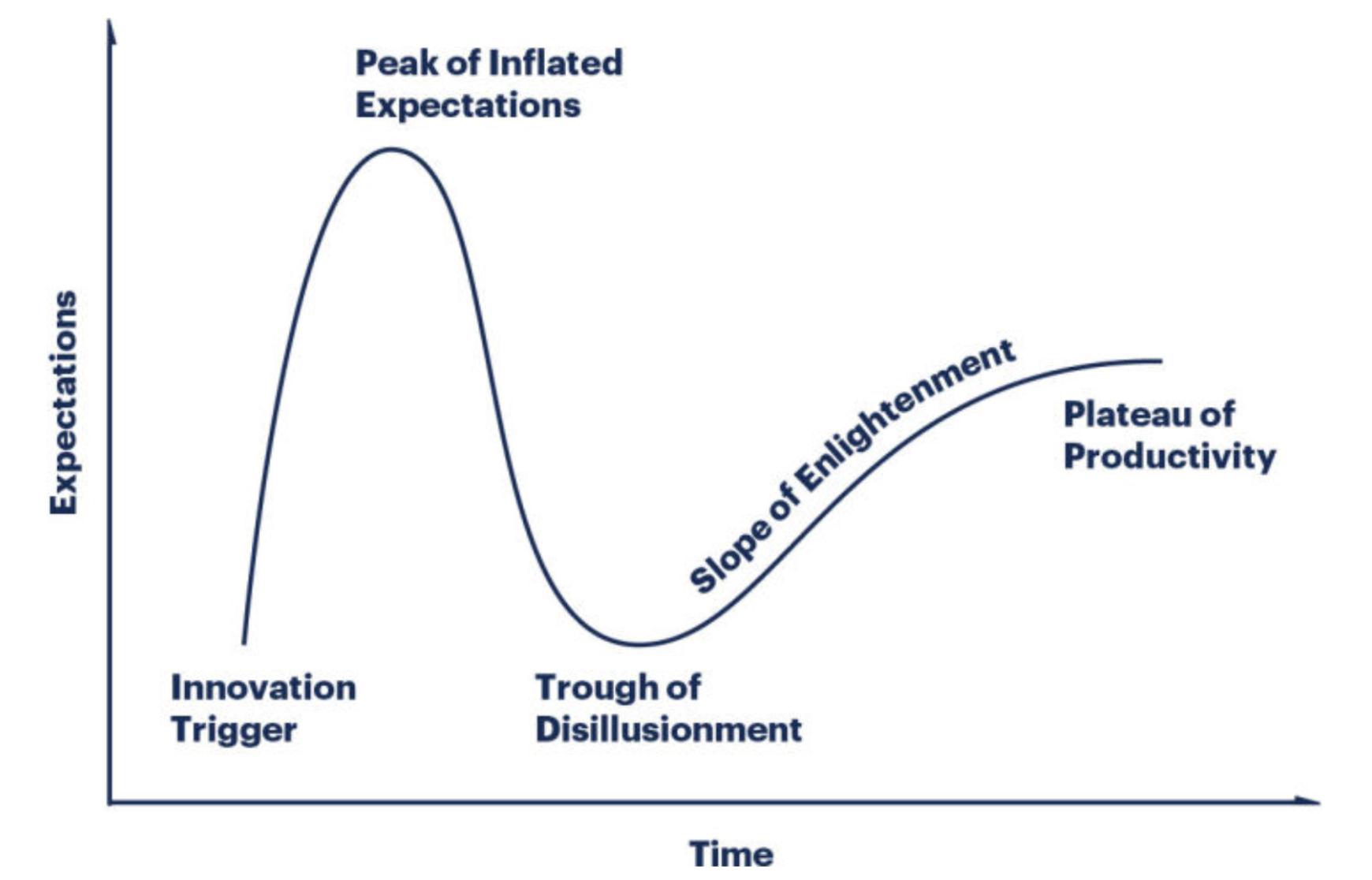Gartner's latest forecast: blockchain becomes the main trend of changing supply chain in 2019
Gartner's latest forecast is that artificial intelligence, the Internet of Things, digital twins and blockchain will be the main trends in changing the supply chain in 2019.

In today's world, supply chains are becoming more and more global and more complex. Raw materials and products are spread across multiple locations and through multiple suppliers, manufacturers, distributors, operators and service providers. Often, the supply chain does not know how many trading partners actually participate. In theory, organizations should understand all parties in their supply chain network, including those in the broader business ecosystem and trust them. But this is far from the reality of today. In this long battle of trust, blockchain technology can solve at least three problems: counterfeiting, traceability and efficient supply and demand.
A blockchain is a distributed ledger, a cryptographic signature shared by all participants in the network, and a chronologically extended list of irrevocable transaction records. The blockchain allows companies to track transactions and work with untrusted parties without the need for a central party (ie, a bank). This has greatly reduced business friction, and applications have started in finance, but have expanded to include government, healthcare, manufacturing, and supply chains. Blockchain can reduce costs, reduce transaction settlement time and improve cash flow. The blockchain is also committed to providing a faster, cheaper cross-border payment network that can connect anyone, including people and places that currently have limited access to the global financial system.
- 21 people were arrested and 9 people were arrested in the "hero chain" fraud case.
- Twitter Featured: Nasdaq Testing Bitcoin Transactions; Amazon Supports Lightning Network Payments
- Will decentralized exchanges become a hotbed for manipulating the cryptocurrency market?

Emoticon: The basic cycle of the Gartner technology cycle curve reveals the cycle that the new technology has experienced: the period of the birth of the promotion – the peak of the high expectations – the bottom of the bubble – the bright period of steady climb – the actual production (Image Credit : https://www.gartner.com/en/research/methodologies/gartner-hype-cycle)
From the basic cycle of the Gartner technology cycle curve, blockchain technology is beginning to usher in a bright period of steady climb in 2019. At the beginning of this year, governments across China have piloted blockchain projects, and the NDRC has also included blockchain information services within the scope of the state into the 2019 incentives. The blockchain is an indispensable part of regulatory technology, such as smart contracts. , intelligent supervision reports, etc., will be further developed and applied, and become a tool to establish a trust mechanism. Local governments and technology companies are investing heavily in blockchains, believing it can be used for health care, remittances, micropayments and identity management.
Wang Jiaping, a distributed system expert, believes that based on the Internet, the decentralization of blockchain is inherently decentralized, and then based on a peer-to-peer network architecture. Therefore, the way users access and access the network is also decentralized. . Then the blockchain also decentralizes the user's account system, user behavior, and data flow and storage, and the implementation of business logic. The execution process of business logic is the true core value of the blockchain. The following case can be used to look at the leopard.

In July 2018, a fund game called Fomo3D, the player buys the key at an increasing price. If no one buys the key for a period of time, the game stops. The last key buyer wins half of the deposited funds, and the other half averages the price. Repurchase all the keys. This is a well-designed Ponzi game, which ended up with a $1.8 million worth of Ethereum at the end of the first round. This fund disk does not have any value packaging. It just describes the rules nakedly. The project side is also completely anonymous. There is no background to check and it is ready to run in minutes. But the game opened in such a situation that there was no trust in endorsement. When I saw that a colleague was also playing, I asked, isn’t I afraid to run? He said that he was not afraid, as long as someone came in later, the sooner the better, the better. Indeed, countless players like him actually believed, and they all rushed in. Then everything happened as scheduled, and the previously agreed rules were strictly enforced without any surprises. This is one of the core values of blockchain technology, an unprecedented capability that was not possible with any previous information technology.
Although the current blockchain model is not yet mature, companies should begin to reassess the technology. Refinitiv analysis believes that the blockchain will create 3.1T commercial value in 2030.
[This article was originally created by Youyou Finance, please indicate the author and source of the original. 】
Author: summer and fall
Source: Youyou Finance http://uucj.com/article/9288
We will continue to update Blocking; if you have any questions or suggestions, please contact us!
Was this article helpful?
93 out of 132 found this helpful
Related articles
- Blockchain weekly report Bitcoin weekly active address +8.17%, BNB affected by the impact of the surge 23.65%
- Market Analysis: Under the market differentiation, where do the funds go?
- Encrypted currency with liar's playing cards
- The Unrecognized Potential of Ethereum: From Prisoner's Dilemma to Cooperative Game
- WikiLeaks Bitcoin Donation Address Retrospection: How much donated? Who is donating?
- Market Analysis: BTC breaks through the morning, the bulls are still building strength
- G20 is near, Japan submits a proposal, wants to be the "big boss" of global supervision





